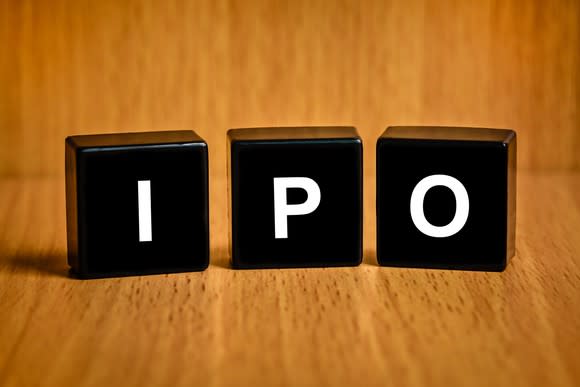What Is an IPO?
All companies have to start somewhere, and often, it involves having the founders invest a chunk of their own money in the hopes of eventually growing the business. But as small, private companies start to gain traction, many come to find that they need outside financing to continue growing, and therefore decide to go public. And that's where IPOs come in.
An IPO, or initial public offering, is the process by which a privately held company begins selling stock to outside investors, thus becoming a public company. From that point on, the company can raise the capital it needs by selling shares, but it must also comply with a strict set of reporting guidelines, as established by the Securities and Exchange Commission (SEC).

IMAGE SOURCE: GETTY IMAGES.
How IPOs work
Most companies get their initial funding by emptying their bank accounts, taking out small business loans, turning to private investors or venture capitalists, or a combination thereof. But there often comes a point where more money is needed for a business to experience the growth it desires.
Enter the IPO. An IPO is the process by which a company first offers shares of its stock to new investors, thereby going public. And it's a lengthy process at that.
What initially happens is that the company in question hires an investment bank (or several banks) to come in and underwrite the IPO. That bank will then put up a sum of money to fund the IPO and agree to buy the shares being offered before they're actually listed on a public exchange. What's in it for the bank? Ideally, profits in the form of paying less per share than what they end up selling for publicly.
To proceed with an IPO, a registration statement must be filed with the SEC. That statement contains key information about the issuing company, including financial and ownership details. Once the SEC approves the IPO, a date for it is set. The underwriter will then put forth a prospectus, which is a document outlining the issuing company's finances. The underwriter will also work with the issuing company to set an initial stock price for when shares are made available to new investors.
Why go public?
The primarily benefit of going public is gaining access to a world of capital. That money can then be used for things such as expansion, research and development, marketing, and whatever else a company needs to grow and keep making money. But there's a flipside, and it's that once a company goes public, it's required to adhere to SEC reporting guidelines, which can be rather strict. Specifically, once public, a company will need to put out regular disclosure statements and share other such financial information with the world. Furthermore, that company will also need to start answering to its shareholders, which means that management loses some control in exchange for that additional funding. Still, it's often a reasonable trade-off to make.
Are IPOs good investments?
Though IPOs can be good for the companies behind them, they're not always great for investors -- especially the inexperienced kind. Though investing in IPOs can be profitable, it's generally a much riskier prospect than investing in established companies with a strong history of solid performance. Though there are certainly exceptions, IPO stocks tend to underperform for several years after being issued compared to the general market. That's because the companies behind them are usually more focused on growing the business than delivering profits to investors. Those inclined to invest in IPOs should therefore take the time to vet the issuing companies carefully before moving forward.
More From The Motley Fool
This article is part of The Motley Fool's Knowledge Center, which was created based on the collected wisdom of a fantastic community of investors. We'd love to hear your questions, thoughts, and opinions on the Knowledge Center in general or this page in particular. Your input will help us help the world invest, better! Email us at knowledgecenter@fool.com. Thanks -- and Fool on!
The Motley Fool has a disclosure policy.

 Yahoo Finance
Yahoo Finance 